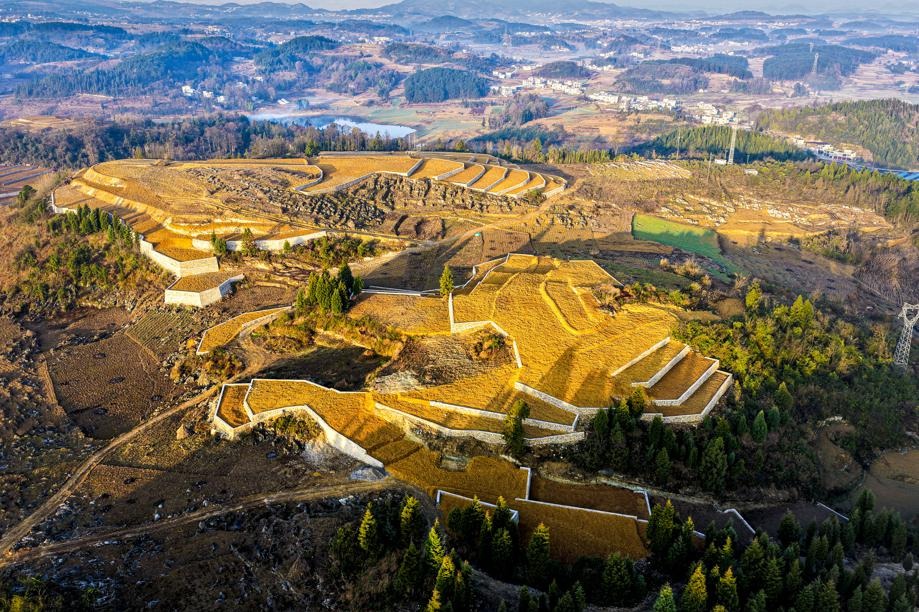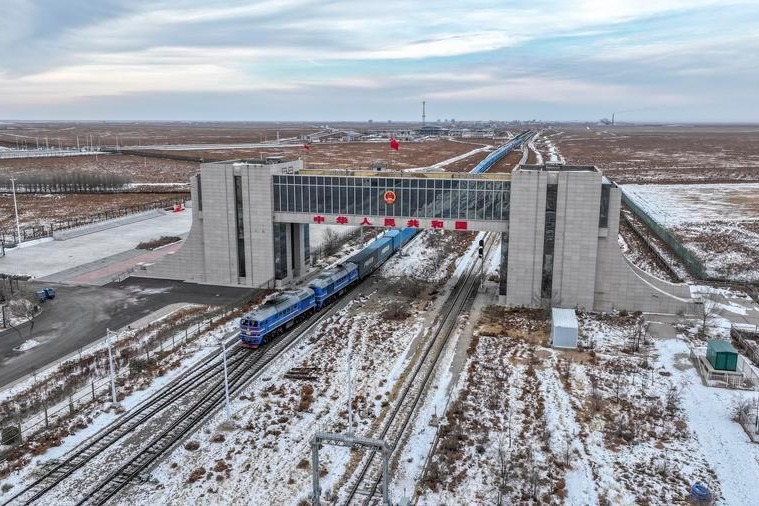Premier Li Keqiang meets the media after the NPC's annual session closes

Lianhe Zaobao of Singapore: With China's economic rise, some critics have been saying that China is increasingly using its money and market as political tools to try to influence other countries' foreign policies or make some sort of political infiltration. How would you respond to that? Should the world feel worried about China's rise and its strategic expansion?
Premier Li: In recent years, China's economic growth has contributed some 30 percent to global growth. This has been conducive not only to global economic recovery but also to world peace. More trade and more cooperation mean more negotiations, and that helps to keep conflicts away. The Chinese believe that one must not do to others what one does not like to be done to himself. We always value peace. We are resolute in upholding China's territorial integrity and will never give up a single inch of our own territory. In a similar vein, we will not take or occupy an inch of others' land. What we pursue is a road of peaceful development.
Our development so far has been achieved in a peaceful international environment. Going forward, a peaceful international environment remains what China needs for attaining modernization. Let me emphasize two points: One, China will not seek expansion. China remains a developing country who has no intention to pursue expansion. Even if it grows stronger in the future, it will continue to defy the logic which predestines a rising country to hegemony. What China wants is to develop relations with all other countries and regions on the basis of mutual respect, equality and mutual benefit. Together, we could build a community with a shared future for mankind.
China's business cooperation with other countries follows market principles and business rules. In pursuing the Belt and Road Initiative, we have sought shared benefits through consultation and collaboration. China's assistance within its capacity to some other developing countries, especially underdeveloped countries, has never come with political strings. It has nothing to do with political influence. In some areas, the international community may want China to assume a greater role. Well, China is ready to fulfill its due international responsibilities commensurate with its status as a major developing country. It would be a misunderstanding to see China playing such a role as seeking strategic expansion.
My second point is that we will continue to focus on managing China's own affairs well. As Chinese premier, I am fully aware that my country is still confronted with many difficulties and challenges, including many pressing livelihood issues. We in the government must deal with these challenges on a daily basis. We travel and make friends around the world in order to foster a peaceful and stable environment, internationally and in our neighborhood, and create more win-win opportunities for China's development. We know clearly that this is what we should continue to do.
People's Daily: Mr Premier, in your Government Work Report you said that fairer and fuller employment should always be a highlight of high-quality development in China. At the same time, however, college graduates, laid-off workers from cutting overcapacity and demobilized military personnel continue to face difficulty in getting jobs, which means daunting challenges in ensuring employment. What do you plan to do to tackle this problem?
Premier Li: Whether the government is doing a good job in employment is best judged by our people. I don't think anyone would be able to cover it up if we fall short on job creation. Let me first address what we plan to do on the employment front this year, as this year's performance will be a good indicator of what is to come in the next five years.
In recent years, with the Chinese economy operating within its proper range, some 60 million new urban jobs have been generated, ensuring relatively full employment in China. This has been a big achievement. Employment is of paramount importance for each and every family, and nothing is gloomier for it than zero employment of its members. A college graduate would not have a future if graduation means joblessness. Governments at all levels must fully appreciate the importance of employment, and always put job creation high on their agenda. In this year's Government Work Report, for the first time, we incorporated surveyed urban unemployment as a projected target, to better reflect the employment situation in both urban and rural areas. This is the government putting pressure on itself.
In urban areas, we expect to see some 15 to 16 million new entrants to the job market this year. Our minimum target is to generate another 11 million new jobs and we will work toward the goal of 13 million in actual practice. We have been able to do that in the past several years and there's no reason for us not to hit that mark this year. Moreover, we have some 280 million rural migrant workers. They have worked hard to pave roads and build skyscrapers in the cities, making great contribution to China's development. Getting migrant workers employed is an important part of China's urbanization process and a big source of their income. This year, we expect to see some 3 to 4 million rural migrant workers coming to the cities, the government must endeavor to fulfill its responsibility in providing job opportunities for these people.
This year, there will be 8.2 million college graduates, another record high number, and 5 million graduates from secondary vocational schools. In addition, there will be some 1 million demobilized military personnel and workers laid off in the cutting of overcapacity. We must make every effort to ensure their employment. In particular, there should be no zero employment families. We must also explore new channels for creating jobs, not least by fostering new growth drivers, which have a proven track record of job creation in the past few years. Fairly full employment will also be a major wealth generator. Just imagine, how much wealth will be created by China's 800 million-strong labor force out of its 1.3 billion population. This will also offer a huge opportunity for international markets.
NBC News: Premier Li, there is increasing concern that China will displace the United States as the world's leader and a lot of talk about a trade war as punishment for what critics describe as unfair trading, industrial policies over an authoritarian, State-led economic model of China. So Mr Premier, in your view, what measures can be taken to address the US' concerns and prevent a trade war? Do you still believe that dialogue can resolve what looks like an imminent threat? And what can China do in the event of a trade war? Would you, for example, use China's vast foreign exchange reserves and massive holding of American debt? Thank you.
Premier Li: Indeed, there has been much talk about an emerging trade war between China and the United States recently. We believe a trade war does nobody any good. No one will emerge a winner from a trade war. War is essentially the antithesis of trade, and trade disputes should be resolved through negotiation, consultation and dialogue. What we hope is that cool heads and rational actions will prevail instead of emotions or impulses holding sway. A trade war should best be avoided.
Last year, China-US trade reached $580 billion. This is achieved through observing business rules and market principles. Otherwise, such a big volume of trade would be unthinkable. A large trade deficit, either with the United States or any other country, is not what China goes after. We want to see a basically balanced trade. Otherwise, it would not be sustainable.
Just now I listed some further steps of opening-up China is going to take covering services, manufacturing and products. US businesses may well seize these opportunities. At the same time, we hope the United States will ease restrictions on exporting high-tech and high value-added goods to China. The associated intellectual property rights will be fully protected. We hope this important measure for balancing China-US trade will not be passed over. Otherwise, a good opportunity would be missed.
China has vast foreign exchange reserves. We have been making diversified investments of these reserves on the basis of market principles, and China will remain a responsible long-term investor. The relationship between China and the United States is one between the world's largest developing country and largest developed country. Our economies are highly complementary. A stable China-US relationship is in the interest of both countries and the whole world. Any worry about China's greater development is unnecessary.
China News Service: Mr Premier, we have noticed that recently some mandatory steps have been taken against certain Chinese insurance and financial companies. Will this happen again in the future? Does this mean that new risks are building in China? And will they set off systemic financial risks?
Premier Li: Let me make it very clear as a person who holds responsibility in this area: China has the capability to forestall systemic financial risks and I do not foresee such risks. This is because the fundamentals of China's economy remain strong, and its financial system is in good shape. That said, as China's GDP exceeds 80 trillion yuan with 250 trillion yuan of assets in the banking sector, our financial system is not risk-free.
Just as a proverb goes, gathering clouds may bring rain and tall trees catch the wind. I recall that at the news conference a couple of years ago, I pointed out that both the capital adequacy ratio and provision coverage ratio of Chinese commercial banks are fairly high and above international standards. Let me add here that the required reserve ratio stands at about 15 percent, which is equivalent to us having some 20 trillion yuan stashed away against risks.
This year, we have taken the initiative to cut the budget deficit to GDP ratio, supported by the sustained momentum of steady growth and higher than expected tax revenues. Last year, the central government had an extra fiscal revenue of 250 billion yuan above projection, and we have yet to dig into that amount of money. The first two months of this year saw a double-digit increase in China's fiscal revenues. So we are confident about meeting all the major economic and social development targets this year.
Going forward, we plan to further cut the deficit ratio. But this does not mean we will change our proactive fiscal policy, for this year will see a considerable increase in fiscal spending relative to last year. Our ability to cut the deficit ratio shows our confidence in the health of our economy and is also meant to make provisions for guarding against global uncertainties and emerging risks at home.
True, some irregularities and evasion of regulation in the financial sector have occurred. The relevant authorities have taken resolute measures to deal with the pockets of risks to prevent them from further spreading. When a blister needs bursting, it should be burst. Otherwise, a small problem may escalate and entail moral hazards. In dealing with these cases, we have taken care to protect the lawful rights and interests of our consumers, and have gained further experience in this area. We will continue to resolutely tackle such cases should they arise in the future.
In this round of institutional reform, we have decided to merge the insurance and banking regulatory bodies to plug possible loopholes. At the same time, we do face another old problem of illegal fundraising. The government will keep up the fight against such illegal activities. I would also like to advise all investors not to buy into the lies of those illegal fundraisers who'd have you believe a bamboo basket will hold a gallon of water.
RIA Novosti: Mr Premier, two years ago I asked you at the news conference about the China-Russia relationship being close politically but lukewarm economically. It seems that this is still how some people would describe the China-Russia relationship today. Russia just held its presidential election and will soon form a new government. As Chinese premier at the start of a new term, what actions do you hope the new Russian government will take to enhance the business ties between the two countries, and what will the Chinese government do? What political message would you like to convey to Russia?
Premier Li: On Monday evening, President Xi Jinping and President Vladimir Putin had a telephone conversation and President Xi congratulated his Russian counterpart on his re-election. Recent years did see a slide in China-Russia trade because of the changing landscape of global trade and the downturn in commodity prices. However, that slide was reversed last year and our trade registered an over 20 percent growth year-on-year. Between our two large economies, trade now exceeds $80 billion. I believe there is still much untapped potential in China-Russia trade. We can work together to bump it up to, say, $100 billion, by exploring new mechanisms and unlocking potential. What I would like to say to the Russian people is that China and Russia are each other's biggest neighbors. The steady growth of the comprehensive strategic partnership of coordination between China and Russia serves the interests of both countries and the world at large.
EBC of Taiwan: In recent years, due to various reasons, cross-Straits relations have encountered some serious challenges with uncertain prospects. My question is, under such circumstances, what will the mainland do to uphold the peaceful development of cross-Straits relations and promote the well-being of people on both sides?
Premier Li: The peaceful development of cross-Straits relations serves the well-being of people on both sides of the Taiwan Straits, and we will continue to go down this path. We have been working on ways to ensure that our fellow countrymen and women from Taiwan will enjoy the same treatment as mainlanders when they come to work, live or study on the mainland, because we are members of the same family, and we both belong to one and the same China. That said, any attempt, proposition or activity for "Taiwan independence" must not be tolerated, and we must not allow any external forces to play "the Taiwan card" to cause difficulties for people on both sides of the Taiwan Straits and for cross-Straits relations. We are willing to have dialogue and consultation with all political parties and groups on Taiwan that subscribe to the one-China principle to discuss all issues that concern people on both sides. We should work together to uphold the peaceful development of cross-Straits relations and eventually achieve China's peaceful reunification. We believe herein lies the fundamental interests of our nation.




































